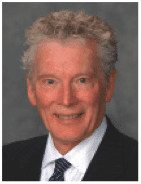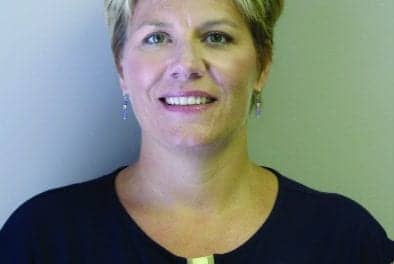By Dennis Van Vliet
Earlier this year, I developed a medical problem. I’ve always been particularly healthy and it was a surprise when I developed an electrical anomaly with my heart that created an abnormally slow heart rate. The inconvenient thing about the slow heart rate is that I would occasionally lose consciousness. Through a series of diagnostic tests and hospitalizations, it was discovered that I had a “complete heart block,” which means that the electrical connections to the lower chambers of my heart, the ventricles, did not receive proper signals for proper rhythm. The “simple solution” was a pacemaker, which has quickly allowed me to get back to my normal life.
During the hospitalization and surgical procedures necessary for diagnostic diagnosis and treatment, I encountered a variety of different medical professionals with vast differences in their ability to communicate with me as a patient. Some were hesitant and tentative in their communicative style. This is not surprising, since many were still completing part of their training and had not fully developed their bedside manner, or in fact the range of knowledge necessary to work independently in the medical profession. Others, like the surgeon who put in the pacemaker, were overconfident and bordering on arrogance. My favorite quote from him: “You had a great surgeon!”
It took a few weeks to get the pacemaker programmed so that it would match and meet my demands with respect to the level of activity that I was accustomed to. Now I can run, complete projects around the house, and pretty much am restored to the lifestyle that I had prior to developing the arrhythmia problem.
I’m quite thankful. To get to that level of success, I had to have some serious conversations with the surgeon. He was too quick to assume that I was like most any other pacemaker patient, and he quickly dismissed my complaints, or assumed that there was something else wrong that required more testing. I switched my care to the department head, who has an excellent blend of empathy, confidence, honesty, and clinical expertise. His style allowed him to quickly arrive at a good solution.
Patient Communication Needs
The experience with medical professionals with their variety of approaches and levels of confidence and ability to express themselves rekindled my interest in clinician-to-patient communication. Not only the language but the manner in which the patient is addressed makes an acute difference in not only the confidence that the patient may feel for the treatment but in fact, how effective the communication is.
In the past few years, I’ve had the fortunate experience of working with a number of AuD students and younger individuals seeking a career as hearing aid dispensers. What I observe are some who are tentative and not overly communicative, while others are to the opposite extreme and appear overconfident. My perception is that I would prefer to have someone counsel me who is honest, open, and confident yet not arrogant in their approach.
In my treatment, I encountered one physician who, although the department head and quite knowledgeable about arrhythmia disorders, was not afraid to call technical support for the implanted device when he had questions about the latest version of software and who was not afraid to let me know when he discovered that programming of the device hadn’t been done exactly as it should have for my needs.
This is exactly how we should look at our communication with patients. We should be confident and forthright but also honest to the point of communicating the limits of our ability to know all aspects of the latest software for the hearing aids or cochlear implant devices we are working with.
When counseling patients, I suggest that we ask ourselves what is it that our patients need to know, what they want to know, and how much are they ready to accept or assimilate at any given time. Our style and content should be well matched to the patient for any given day. If our approach is tentative, if we don’t make eye contact, and most importantly if we don’t communicate a sense of genuine concern about the patient and their progress, we are unlikely to achieve the level of communication needed for us to do our job.
These elements of communication are difficult to train if a new clinician doesn’t have an innate sense of these components. It may be difficult for mentors to train a developing clinician to develop communication skills, yet not impossible. Clear, frank, and constructive feedback about a person’s effectiveness as a communicator can allow a supervisee to assess their ability to project a caring and compassionate approach while at the same time projecting confidence in their knowledge of the topic.
Today’s emerging professionals have grown up in a time when conversational speech may include mannerisms that may not project a sense of confidence. If a conversational tone that may be appropriate with a 25-year-old is adopted for counseling a 60- to 70-year-old, the patient may misinterpret what is meant. What should be a confident and declarative statement about the treatment plan for an individual may come out more like a question, and confuse the message. Probably no better service can be offered a young clinician or supervisee than to provide simple feedback encouraging effective communication and a sense of empathy for the patient.
The Final Word? As professionals, we should be able to communicate a clear message to patients, and similarly be receptive to the message that they feel a need to relay to us. We aren’t responsible for how patients communicate with us, but we are responsible for being receptive to the message that they have for us that is critical to the treatment plan. We are very much responsible for adopting a communication style that serves patients better than it serves our personal needs, and properly guides them in their journey to better hearing.

|





